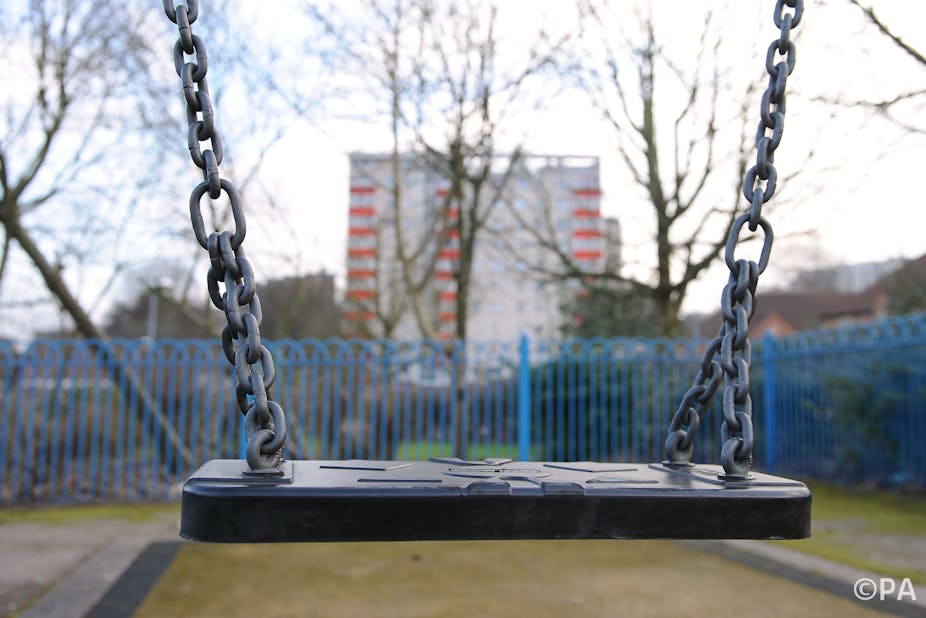A new generation is starting their working life in an age of inequality. The income of 22 to 30-year-olds is projected to be 7.6% lower in 2014-15 than it was in 2007-8, according to new analysis of median incomes from the Institute for Fiscal Studies. But they estimate incomes will be 2.5% lower for those aged 31 to 59. And now messages about the problems of inequality from the spheres of global finance and economics are converging on a similar path.
There has been a recognition among many prominent financial organisations, institutions and economists that unrestrained capitalism is the source of the world’s widening economic inequality. Resolution lies in a fairer distribution of material and cultural resources among the less well-off in society.
For some time, researchers have recognised how education systems sustain and reproduce these material and culture inequalities. In a blog post last year on the educational entitlement of troubled and troublesome young people for the British Educational Research Association’s (BERA) project Respecting Children and Young People, education researcher Pat Thomson claimed:
Educational researchers, many now derided and dismissed out of hand, have systematically documented how particular curriculum, pedagogies and assessment practices combine with the administrative processes of schooling to produce and reproduce both educational privilege and disadvantage. The same system leads to both success and failure.
Derision of messages from educational researchers by politicians such as the former education secretary Michael Gove seem symptomatic of a deeper malaise in public life.
This expresses itself as a refusal to acknowledge that the business-as-usual educational policies of government are not going to heal the widening divisions between the privileged and disadvantaged.
Options on the table would change little
The proposed solutions to inequality in post-financial crisis educational policy are a continuance of the policies before the crisis. While they might argue about the details, the major political parties were and still are advocating for increased private involvement in state-funded education, and teaching and curricula driven by assessment.
Privatisation and teaching to the test are both practices that we know are more likely to increase rather than decrease social divisions. Of the five highest polling political parties in the UK, only the Green Party openly proposes to reintegrate free schools and academies into the local authority maintained system to stem the social fragmentation with which they are linked.
While all the UK’s political parties claim to be committed to reducing widening inequalities, solutions to inequality differ because the aims of education differ from different political standpoints. Standford historian David Larabee’s 1997 work on disputed goals of American publicly funded education helps explain this. Differing political stances might claim to stand for equality, but many merely co-opt its terminology, with the intention of either creating a conservative society where everyone knows their place or providing ladders of social mobility for a privileged few.
If we want a society that promotes “democratic equality”, using Larabee’s term, then we need to construct an education system that prepares children and young people to participate in that democracy.
Blueprint for a restructure
A group of British educational researchers have published a new pamphlet, pulling together evidence from a vast body of research on how to reconstruct our education system based upon principles of equality of opportunity and outcome.

Our formal education institutions, such as schools, colleges and universities, cannot solve the problems of an unequal world on their own. A fair and equal education system must work on many fronts. Within formal education, teachers need to understand and recognise how inequalities of race, ethnicity, gender, class and fixed ideas about ability are perpetuated through their own classroom practices.
Yet, to achieve anything other than ad hoc improvements in teaching, there needs to be system-wide support for change. This should include redistribution of funding to the most disadvantaged schools and better support for teacher’s professional development.
The curriculum must be equally interesting, enriching and challenging for all pupils. A national curriculum that is embedded through extended schools and services in the places and communities in which children and young people live provides the opportunity to create joined-up and transformative educational experiences.
Through our teaching, curriculum and assessments we can do more to build and recognise children and young people’s social and cultural capital: their non-financial resources such as qualifications, interests, understanding and social contacts.
We must also recognise and support meaningful learning that occurs outside of the authorised pathways to employment. This should support early childhood education in all its settings, support work-based and vocational learning, and bring in informal learning and out-of-school activities. Support for a broad spectrum of educational experiences must extend to society’s beliefs about success, so that children and young people are valued for their effort and long-term achievements as well as their attainment in tests and exams.

